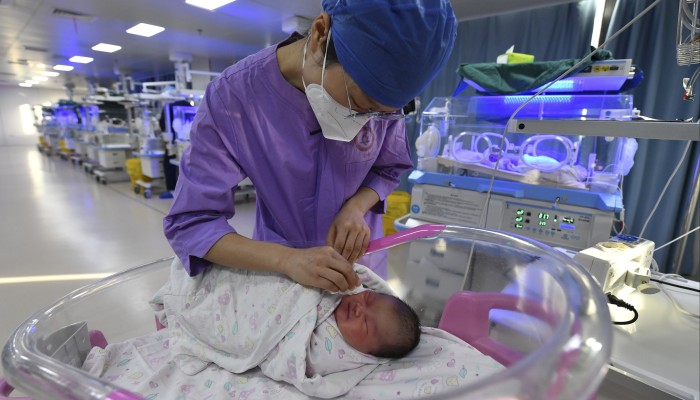Why China is betting on birth subsidies to solve its population crisis
When Tang Tang, a mother from Tianmen in central China, gave birth to her second child in December, it brought her family untold joy – and a thick wad of cash.
Within months of leaving hospital, the local government paid Tang a 6,500-yuan (US$897) reward for having two children as part of a new birth subsidy scheme introduced last year. She will also receive an 800-yuan allowance every month until her new baby turns three.
For a family in Tianmen, where income levels are far lower than in megacities such as Shanghai, the new birth subsidies represent a genuine windfall.
“Your baby was born with her own food,” one user commented under Tang’s post sharing her experience on Douyin, China’s version of TikTok.
China is wagering that these kinds of economic incentives can convince families to have more kids, as it strives to arrest a looming demographic crisis.
The decline threatens to put the country’s economy under strain, as the working-age population becomes ever smaller and the government’s health, pensions and social care costs soar due to a steep rise in the number of retirees.
Read more @scmp











